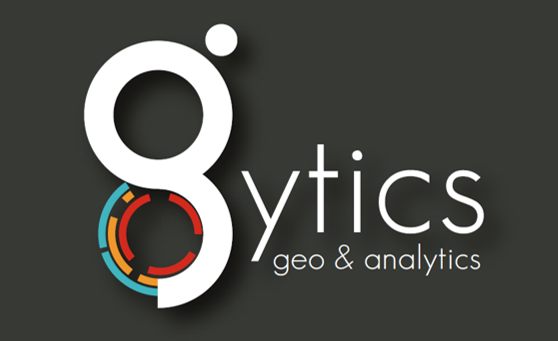60407
Gytics - Geo&Analytics
Revolutionizing real estate appraisals
Portugal
Market: Consulting, Real estate, Tourism, sport
Stage of the project: Idea or something is already done
Date of last change: 21.06.2023
Portugal
Market: Consulting, Real estate, Tourism, sport
Stage of the project: Idea or something is already done
Date of last change: 21.06.2023
Idea
Gytics, an independent project initially developed by GeoPoint, is transforming real estate appraisals by digitalizing processes and offering advanced spatial analysis and visualization tools. With a focus on streamlining workflows and empowering informed decision-making, Gytics eliminates paper-based appraisals and enables appraisers to perform detailed assessments using spatial data. The platform's powerful visualization tools provide easy-to-understand representations, fostering collaboration and enhancing the real estate industry's efficiency and profitability.
Current Status
At GeoPoint, we developed 2 projects that are connected with this one. One is a geographic visualization and analysis platform in use by the Portuguese government and other entities. The second project is a location intelligence tool developed for Cushman&Wakefield Portugal and then for Cushman&Wakefield South America for managing and make real estate appraisal processes more efficient.
Our goal is to develop a combined solution both for managing appraisals processes workflows and real estate analytics visualization.
Our goal is to develop a combined solution both for managing appraisals processes workflows and real estate analytics visualization.
Market
Real Estate Valuation is a big market present in all countries. Used for mortage purposes, investments, or management, is something that need to be done with an associated frequency. Its a process that usually involves 2, 3 or 4 entities, sharing data with a lot of inefficiencies. The clients can be Consultancy firms such as Cushman&Wakefield (our client), Valuation companies (more granular) and valuers but also, banks, insurance companies, Real Estate investment companies, Asset management companies...
Problem or Opportunity
The oportunity is to fill the gap between IT and Real Estate consultants with a tool that can save a lot of time both for Real Estate consultancy firms and Final costumers such as banks, investment companies, asset management...
They can drop the "excel files" based archive and have a central database with a workflow that reduces time and where they can monetize the data by generating insights.
They can drop the "excel files" based archive and have a central database with a workflow that reduces time and where they can monetize the data by generating insights.
Solution (product or service)
Valuation reports cross a lot of entities, and several companies provide valuation reports. The reports are always 90% similar. There is no compatibility between reports and each company has their own which make them useless in the future (they could be monetizing internally and externally as statistics). Besides, most of the companies deal with this workflow manually with a lot of inefficiency. The ones who have tailor made software’s they become too complex, quickly obsolete, and extremely expensive. They become inefficient. We want to fulfil this gap with a software that can be used as a middleware for valuation reports making them compatible and provide a tool that can make the process more efficient, including adding AI tools for text generation and validation.
This workflow has 2 main levels + 1. The first are banks/real estate investors/asset management companies that don’t do valuations but are their costumers (loans, investments, etc.). The second are consultancy/valuation companies that make the valuations reports and send to the first ones. It exists 3 third level that is granular valuers (individuals) that work as freelancers for the valuation companies. Valuation reports, more than 90% of the time cross those 3 entities.
Our goal is to manage all this workflow on a single platform helping 1st level clients to be more efficient managing their information, distribution work, reducing report analysis and reduce rejection rates (fewer working hours per valuation).
This workflow has 2 main levels + 1. The first are banks/real estate investors/asset management companies that don’t do valuations but are their costumers (loans, investments, etc.). The second are consultancy/valuation companies that make the valuations reports and send to the first ones. It exists 3 third level that is granular valuers (individuals) that work as freelancers for the valuation companies. Valuation reports, more than 90% of the time cross those 3 entities.
Our goal is to manage all this workflow on a single platform helping 1st level clients to be more efficient managing their information, distribution work, reducing report analysis and reduce rejection rates (fewer working hours per valuation).
Competitors
There are local providers that have some of gytics functionalities. For example:
HouseCanary: HouseCanary offers data analytics and valuation tools for real estate professionals, providing insights into property values, market trends, and forecasts.
Datamaster: Datamaster provides appraisal software that automates data entry, analysis, and report generation, improving efficiency in the appraisal process.
Anow: Anow is a cloud-based appraisal management platform that streamlines workflows, communication, and collaboration among appraisers, lenders, and other stakeholders.
Valuation Management Solutions (VMS): VMS offers a comprehensive appraisal management system, including order management, vendor management, and compliance tools.
ACI: ACI provides appraisal software solutions that include form-filling, data analysis, and reporting functionalities, helping appraisers generate accurate and compliant appraisal reports.
HouseCanary: HouseCanary offers data analytics and valuation tools for real estate professionals, providing insights into property values, market trends, and forecasts.
Datamaster: Datamaster provides appraisal software that automates data entry, analysis, and report generation, improving efficiency in the appraisal process.
Anow: Anow is a cloud-based appraisal management platform that streamlines workflows, communication, and collaboration among appraisers, lenders, and other stakeholders.
Valuation Management Solutions (VMS): VMS offers a comprehensive appraisal management system, including order management, vendor management, and compliance tools.
ACI: ACI provides appraisal software solutions that include form-filling, data analysis, and reporting functionalities, helping appraisers generate accurate and compliant appraisal reports.
Advantages or differentiators
Integrated Solution: Gytics stands out as an integrated platform that combines digitalization, visualization tools, and spatial analysis capabilities. This all-in-one solution eliminates the need for multiple tools or software, providing convenience and efficiency for real estate appraisers.
Digital Transformation: Gytics enables the digitalization of real estate appraisal processes, reducing reliance on traditional paper-based methods. By centralizing data and documentation within the platform, it streamlines workflows, reduces administrative burdens, and enhances data accuracy.
Advanced Spatial Analysis: With Gytics, appraisers have access to advanced spatial analysis capabilities. They can perform detailed assessments using spatial data, such as property locations, demographics, and market trends. This empowers them to make informed decisions based on comprehensive insights and accurate spatial representations.
Powerful Visualization Tools: Gytics offers robust visualization tools that transform complex data into easily understandable visual representations. Users can create interactive maps, 3D models, charts, and graphs, enabling stakeholders to explore data from different perspectives and uncover valuable insights.
Seamless Integration and Collaboration: Gytics seamlessly integrates with existing real estate workflows and systems, supporting data integration from various sources. It also facilitates collaboration by providing secure data sharing and customizable reporting templates, enabling efficient communication and decision-making among stakeholders.
Expertise and Experience: Developed by GeoPoint, a GIS Portuguese company with a long-standing presence since 2000, Gytics benefits from years of expertise in geographic information systems. This experience contributes to the platform's reliability, accuracy, and understanding of the real estate industry's specific needs.
Digital Transformation: Gytics enables the digitalization of real estate appraisal processes, reducing reliance on traditional paper-based methods. By centralizing data and documentation within the platform, it streamlines workflows, reduces administrative burdens, and enhances data accuracy.
Advanced Spatial Analysis: With Gytics, appraisers have access to advanced spatial analysis capabilities. They can perform detailed assessments using spatial data, such as property locations, demographics, and market trends. This empowers them to make informed decisions based on comprehensive insights and accurate spatial representations.
Powerful Visualization Tools: Gytics offers robust visualization tools that transform complex data into easily understandable visual representations. Users can create interactive maps, 3D models, charts, and graphs, enabling stakeholders to explore data from different perspectives and uncover valuable insights.
Seamless Integration and Collaboration: Gytics seamlessly integrates with existing real estate workflows and systems, supporting data integration from various sources. It also facilitates collaboration by providing secure data sharing and customizable reporting templates, enabling efficient communication and decision-making among stakeholders.
Expertise and Experience: Developed by GeoPoint, a GIS Portuguese company with a long-standing presence since 2000, Gytics benefits from years of expertise in geographic information systems. This experience contributes to the platform's reliability, accuracy, and understanding of the real estate industry's specific needs.
Finance
6 year project
Total Expenses: ~3.5M
Revenue: ~3,9M
Break even: 3rd year
Payback: 6th year
Not considering project with EU funding programme(s) [40-45%]
Total Expenses: ~3.5M
Revenue: ~3,9M
Break even: 3rd year
Payback: 6th year
Not considering project with EU funding programme(s) [40-45%]
Business model
Taylor made developments + subscription-based model, where users pay a recurring fee to access and utilize the platform's digitalization, visualization, and spatial analysis capabilities. Additionally, the business model could incorporate tiered pricing plans, offering different levels of features and support based on the needs and budgets of the users.
Money will be spent on
Dedicated development team (85%)
Marketing development (15%)
Marketing development (15%)
Offer for investor
negotiable
Team or Management
Risks
Market Competition: The real estate appraisal technology market is highly competitive, and Gytics may face competition from established players or emerging startups offering similar solutions. Competitors with larger market presence or extensive resources may pose a challenge to Gytics' market penetration and growth.
Technological Obsolescence: The technology landscape evolves rapidly, and there is a risk that the features and capabilities offered by Gytics may become outdated over time. To mitigate this risk, regular updates and enhancements are crucial to keep pace with emerging technologies and evolving customer expectations.
Data Security and Privacy: As a platform that deals with sensitive real estate data, maintaining robust data security and privacy measures is crucial. Any breach or unauthorized access to user data could significantly impact trust and reputation. Implementing strong security protocols and complying with relevant data protection regulations are essential to mitigate this risk.
Adoption Challenges: Introducing a new technology solution into an established industry can face resistance and adoption challenges. Convincing appraisers and other stakeholders to embrace digitalization and change their existing processes may require education, training, and addressing concerns related to workflow disruption or learning curves.
Technological Obsolescence: The technology landscape evolves rapidly, and there is a risk that the features and capabilities offered by Gytics may become outdated over time. To mitigate this risk, regular updates and enhancements are crucial to keep pace with emerging technologies and evolving customer expectations.
Data Security and Privacy: As a platform that deals with sensitive real estate data, maintaining robust data security and privacy measures is crucial. Any breach or unauthorized access to user data could significantly impact trust and reputation. Implementing strong security protocols and complying with relevant data protection regulations are essential to mitigate this risk.
Adoption Challenges: Introducing a new technology solution into an established industry can face resistance and adoption challenges. Convincing appraisers and other stakeholders to embrace digitalization and change their existing processes may require education, training, and addressing concerns related to workflow disruption or learning curves.
Incubation/Acceleration programs accomplishment
none
Won the competition and other awards
none
Photos
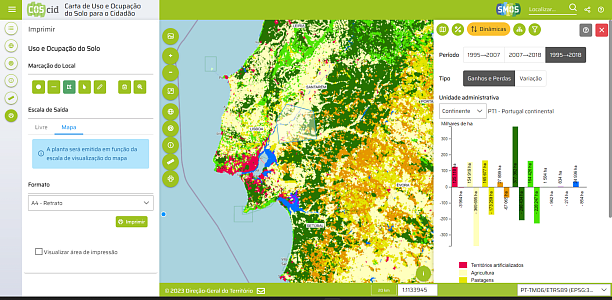
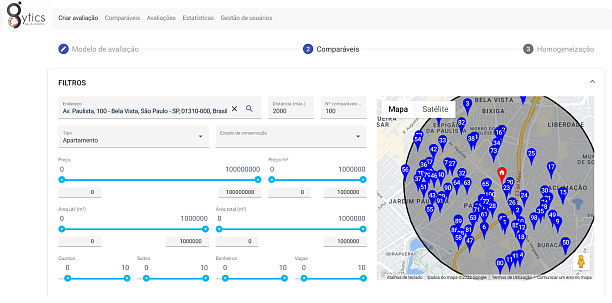

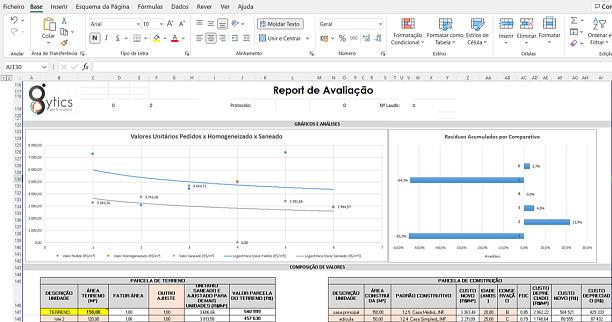
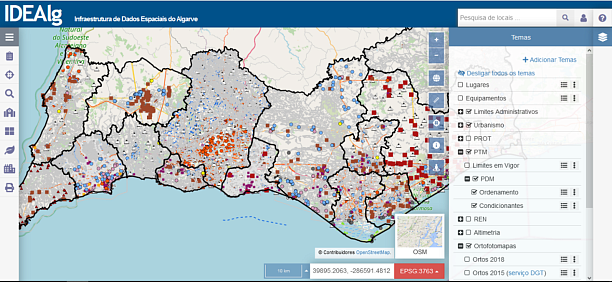
Presentation
Sign in/Sign up
